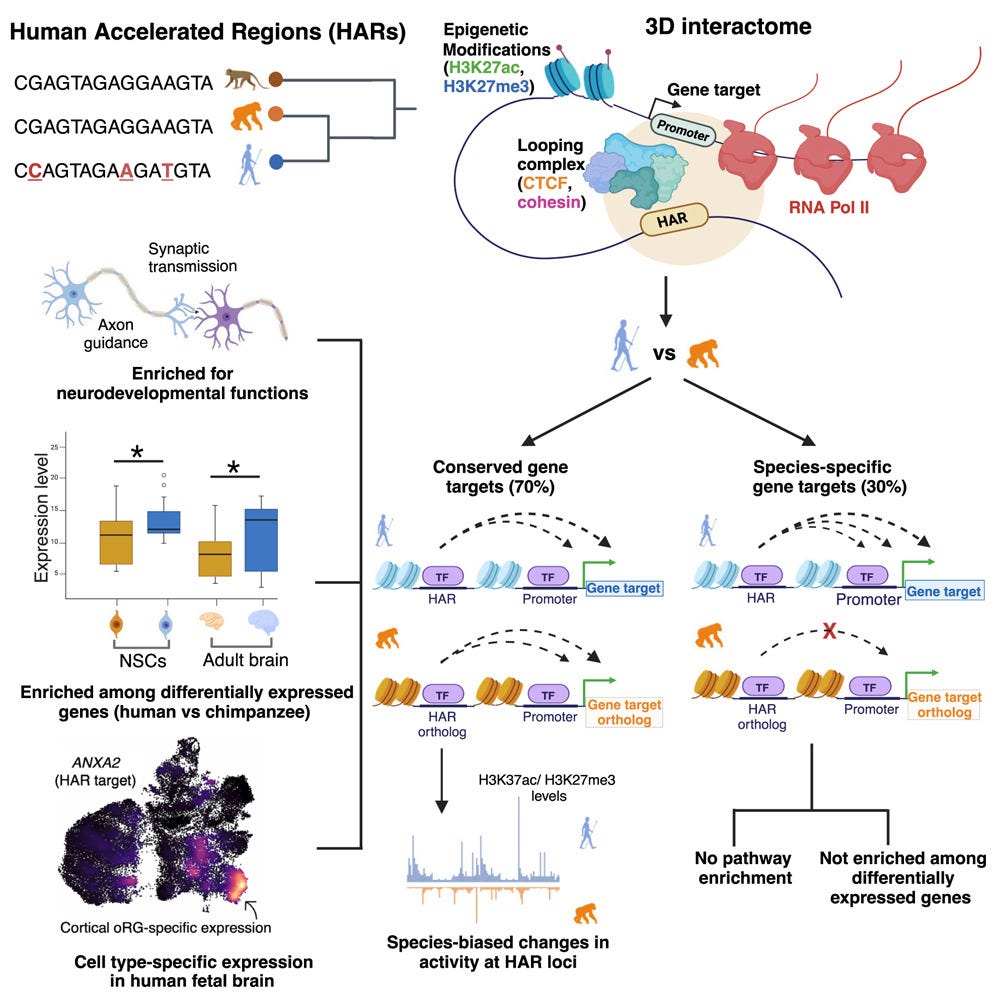The Genetic Fine-Tuning That Set the Human Brain Apart
Unlocking the Genetic Blueprint of Human Intelligence
One of the greatest mysteries in human evolution is how the brain—an organ that consumes vast amounts of energy and orchestrates everything from language to tool use—became so distinct from that of our closest primate relatives. A recent study published in Cell 1 sheds new light on this transformation, showing that small but crucial genetic tweaks may have played a defining role.
Researchers at Yale University focused on Human Accelerated Regions (HARs), stretches of DNA that are nearly identical across most mammals but underwent rapid changes in humans. These regions don’t code for proteins themselves but act as regulatory elements, influencing how and when genes are expressed. The study found that rather than introducing entirely new genes, HARs fine-tuned existing genetic pathways, shaping the way neurons form, grow, and interact in the developing human brain.


